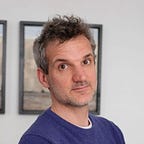The Tao of Tupac
The Enduring Relevance of Machiavelli’s “The Prince”
You’re a good person in a world of scoundrels. You know what you need to do for the best, but you’ll die trying to take the honourable path.
This is the basic, but unwritten, premise of Niccolò Machiavelli’s The Prince. The word “Machiavellian” is used as much in the workplace as it is in politics. It has come to mean the willingness to use deceit or even violence to gain the upper hand in a competitive world.
The renaissance-era Italian diplomat and political philosopher looms large over “realpolitik” foreign policy, business rivalries, presidential campaigns and boardroom takeovers.
Even the rapper Tupac Shakur gave himself the moniker “Makavelli” after studying The Prince while in jail and recovering from an attempt on his life.
For Shakur, the theories spun by a European five hundred years previously were the difference between life and death in a dastardly world of deceit, betrayal, money and murder.
Finding himself famous but broke and hated and loved in equal measure in the middle of a deadly feud, Tupac rebirthed himself as a pragmatist who needed to survive and thrive with the Italian philosopher’s advice.
